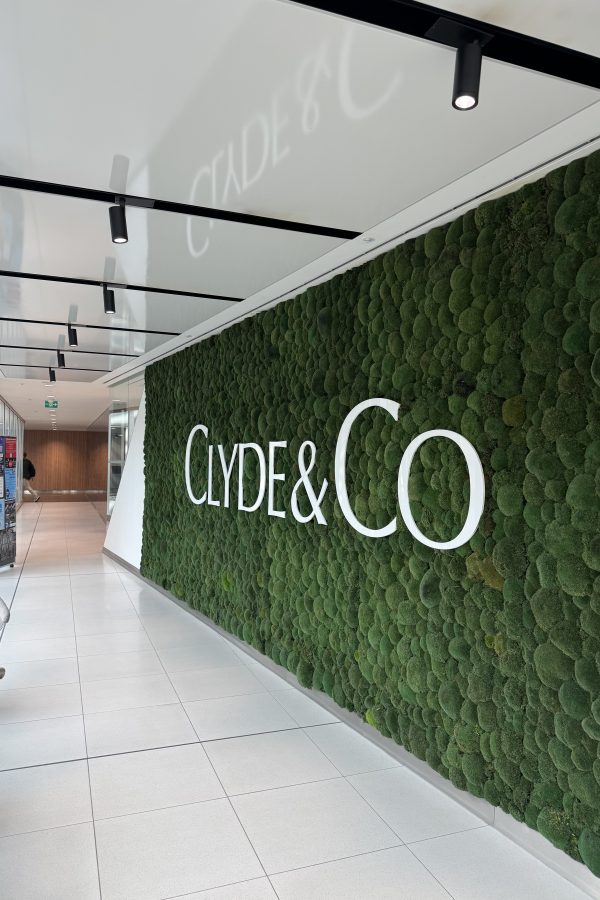With millions rolling over annual leave in the hope of a holiday later in the year, are organisations storing up problems for themselves, particularly as burnout takes a toll on workers who fail to take this year’s entitlement during lockdown?
“I know I should take a few days off but there’s so much work coming my way at the moment.”
“There’s nothing to do though… I’d rather save it up for later in the year; my boss is letting me roll most of it over.”
“Every day’s the same and I just get so bored with Zooms – I’m just not feeling motivated anymore.”
“I can’t go to the gym, or the pub, there’s nothing to do but work. But I don’t feel connected anymore as it is, so if I took a week off I might be forgotten about altogether unless I crept back onto emails.”
These are all similar comments most of us have heard, or said, over the past few months, particularly since the onset of winter and the realisation that the pandemic wouldn’t be taking a Christmas break. Above all, the sense that there’s so much work to be done is dominant, a factor that seems to have led to problems at some banking firms, such as Goldman Sachs were it has been reported that between three and six members of London-based teams are feeling the symptoms of burnout.
Some of these attitudes show muddled thinking and could be the result of lockdown lethargy. But they also stem from the lack of clear leadership from managers failing to encourage people to take time off – managers who are unaware of the signs of burnout, who themselves are feeling the pressure of the relentlessly intense working-from-home-with-no-outlet regime.
Clash of the holidays
But individual burnout isn’t the only risk being faced by organisations; the rather more mundane risk of holiday scheduling clashes may raise its ugly head later this year. This could yet be mitigated by the impossibility of foreign travel, meaning that people still maintain flexibility over their exact dates. But the risk remains that companies could see large proportions of staff all seeking to take time off just as the first post-pandemic conference season is kicking off or the first major new project of the post-Covid crisis era is launched.
Should managers be more forthright with employees over taking their paid leave and regulating it better throughout the year?
For Chris Oglethorpe, HR director at Gowling WLG, that’s a soft yes. He says: “We have continued to focus on wellbeing throughout lockdown and have asked senior leaders to encourage people to take holidays, even if only as a break from the screen and to refresh. We won’t mandate holidays as it is counter cultural here but, I know some corporates did last year to ensure people weren’t building up balances to take when lockdown eased.”
A “perfect storm”
Monkey Puzzle Training and Consultancy, which numbers Scottish Widows, Heathrow and John Lewis among its clients, identifies holiday as a major issue for companies and one they need to get right. First of all, burnout is a constant threat, says co-founder, organisational psychologist Karen Meager. She has witnessed many employees “working increased hours at the expense of their wellbeing” partly because of the fear of not being seen as productive and the “threat of possible redundancies causing continued levels of unhealthy anxiety”.
She confirms that employers are facing an annual leave backlog as employees fail to take holiday during lockdown.
These connected events could create a “perfect storm”, she says, that sees many people on the road to burnout. Worse, is that so many employees simply don’t recognise the dangers ahead. Meager says this is because “the process of reaching adrenal burnout can take months, or even years, so people are often unaware of the long term implications of these unhealthy working patterns, one of which is lack of leave”.
Exacerbating the issue is the lack of visibility line managers have over staff working from home. They can no longer see common burnout symptoms, such as body language changes, mood swings or increased apathy with work – these can be easy to hide virtually, Meager says.
Fellow Monkey Puzzle co-founder John McLachlan, also an organisational psychologist, agrees that line managers must be on top of annual leave in this difficult period. “One way that employers can help is by reminding their staff of their remaining holiday entitlement and communicating the importance of a healthy workplace. Proactive line managers could schedule meetings with those that have a certain percentage of holiday allowance remaining as this could be an indicator of wider issues, such as burnout or time management.”
He warns that “Leaders should be walking the talk in these areas to stop employees from feeling guilty for taking their own allocations.” Leaders who constantly appear to be working with no time off or who endlessly schedule meetings at all times “sends a clear message this is what should be delivered by others, when it is unsustainable and contributes to burnout”, says McLachlan. “In addition to holiday, employers should also be respecting personal boundaries.”
Encourage employees
Meager and McLachlan emphasise that individual wellbeing is not the only issue at stake but the organisation’s productivity. “When a staff member is aware of their own workload and managing their time effectively, it demonstrates commitment to delivering their best work and knowing their strengths,” says Meager. “This is the message leaders need to embody within their whole organisational culture to move away from the dangers of presenteeism that often stops people from taking holiday.”
“After all,” says McLachlan “the whole objective of a holiday is to return refreshed and re-vitalised which, in the current climate, should be a priority.”
For Rachel Suff, CIPD senior policy adviser, employment relations, the message about leaders “holidaying by example” can’t be over stressed, but she does not believe they should be too forthright about taking holiday. “It’s best if employers adopt ways to encourage people rather than a prescriptive approach; they can do this by reminding people of any holiday entitlement left, messaging about the health benefits of having a break from work, and by managers and leaders role-modelling the right behaviour by taking holidays themselves.”
Suff sees the government’s extension of the period where workers can carry over annual leave as a positive move so that people don’t lose their holiday entitlement but she concedes that organisations need to encourage all employees to take a break: “Every year CIPD research shows high levels of ‘leaveism’, such as people working when on holiday. In the longer term people will feel more energised and productive if they have an opportunity to recharge their batteries and switch off from work routines and pressures.”
Melanie Stancliffe, employment partner at law firm Cripps Pemberton Greenish, says that there is a potential problem with the government’s “carryover” law change: “The holiday can only be carried over when it was ‘not reasonably practical’ for employees to have taken their leave as a result of coronavirus. What is not “reasonably practical” is the cause of uncertainty and will vary.
She says employers face little choice than to go along with the carry-over policy: “Rather than face disgruntled staff or a future claim, employers should err on the side of caution and allow the roll-over of annual leave but ensure it is taken at a time that suits their business needs.”
Holiday conflicts
But what of the dangers to “business needs” of everybody wanting to take a holiday at the same time – perhaps around the time when easyJet resumes flights to Mallorca for £50 each way? How can holiday conflicts be resolved without some employees left feeling angry, having taken time off during lockdown and not rolled any holiday forward? They still deserve a break too, not just people who risked burnout to work throughout lockdown.
When the government’s lockdown easing roadmap was published in February holiday bookings surged as people, probably mistakenly, seized on the chance of a break abroad later in the year. This came on top of 35% of UK employees rolling over some 2020 holiday into 2021. Alan Price, BrightHR CEO, recognised the risk: “Considering this influx of annual leave requests, especially once restrictions hopefully end, employers need to keep on top of annual leave requests to avoid any holiday clashes. If they haven’t already, I would advise employers to lay out clear guidelines on booking annual leave in their workplace policies now.”
Steve Arnold, CEO at e-days, added: “Businesses need to ensure they are properly set up to deal with holiday bookings that do not leave them short of staff, or at risk of employee burnout this year. HR teams need to ensure the company is not only properly resourced throughout the year, but that employees are able to take adequate time off to relax and recuperate after what has been a stressful 12 months.” So on top of all our misfortunes over the past 12 months comes the real risk of employers turning down requests for much needed holiday.
In the meantime, the message must be: “take your holiday while you can” – even if all you can do is stroll around the local park.










